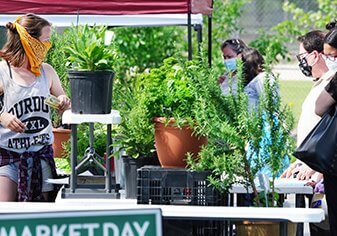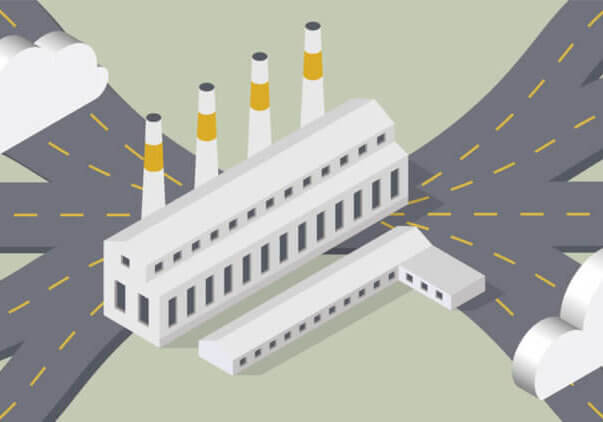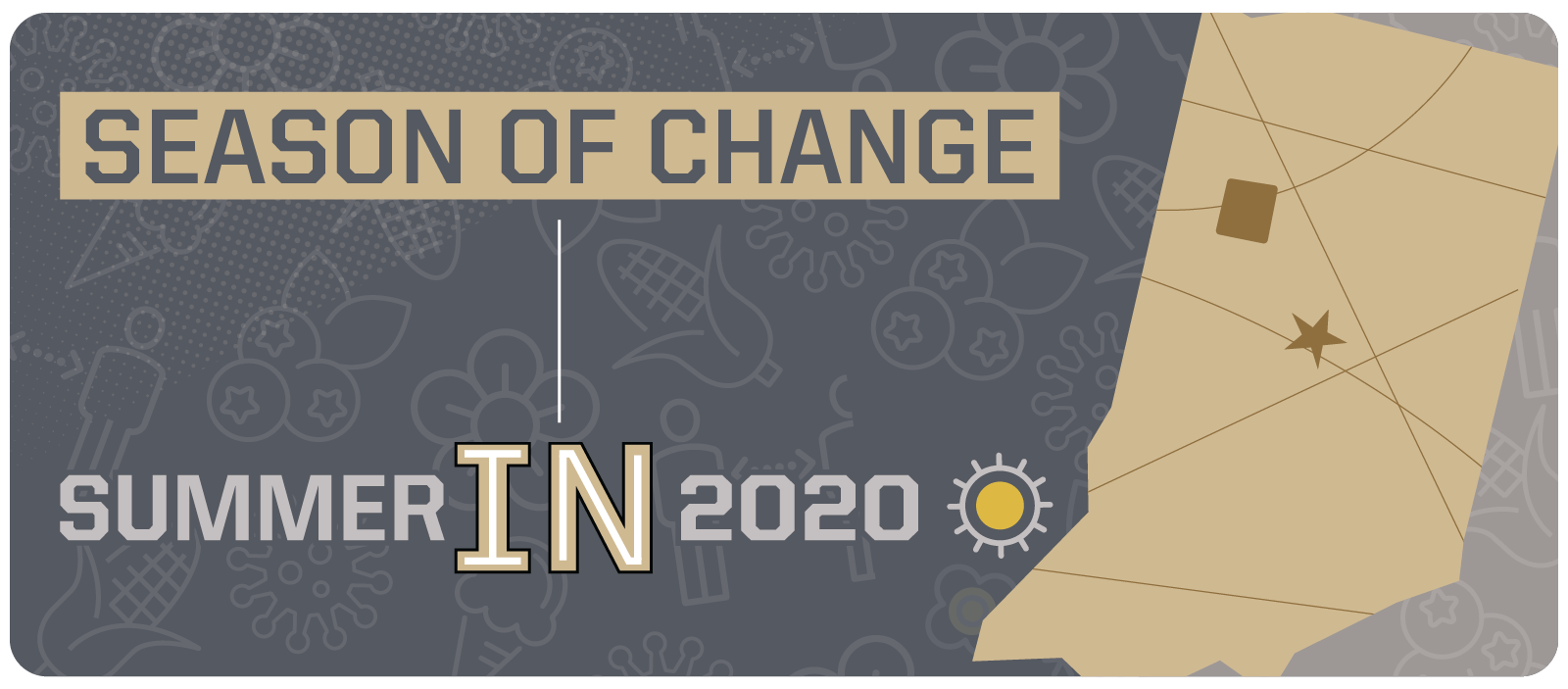
COVID-19 guarantees that the Summer of 2020 will be like none we have experienced. We will be exploring what that means in Indiana by telling the stories of Purdue Agriculture’s and Purdue Extension’s interactions with communities throughout the state. We invite you to follow our series on this Season of Change.
B
y day, Marshall Martin is a professor of agricultural economics, the senior associate director of agricultural research and graduate education and assistant dean in the College of Agriculture. In the evenings, he’s known to many customers as just the “blueberry man.”
While much at Martin Acres LLC, the West Lafayette farm he manages with his wife, Berdine, remains the same this year, they are taking precautions due to COVID-19. Martin is basing these necessary safety adjustments on guidelines for U-pick operations published by Purdue Extension.
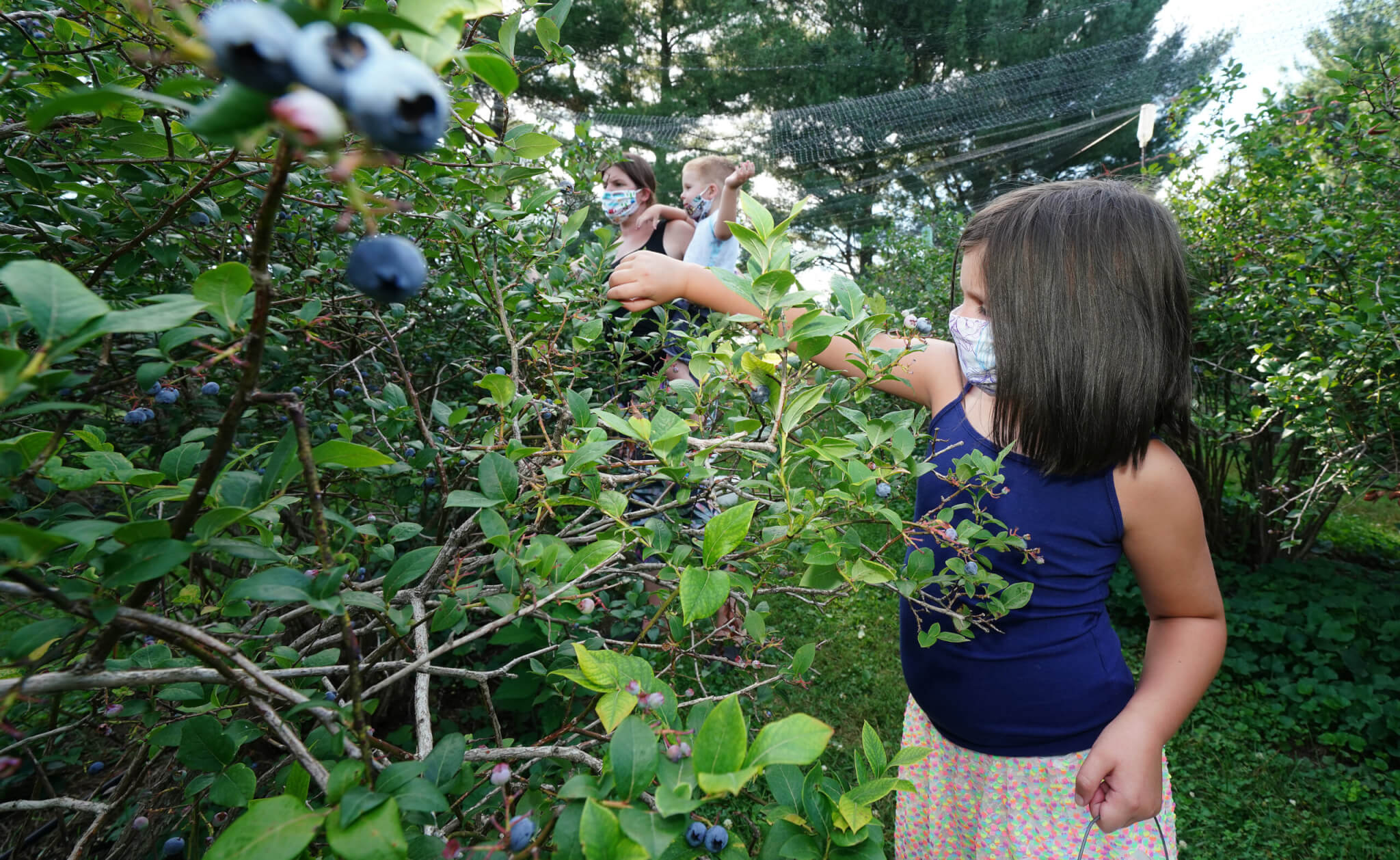
As state restrictions are eased and expert consensus suggests that being outside is safer than crowded indoor areas, agritourism offers an opportunity to safely enjoy life outside.
Opening around July 1, Martin Acres will have handwashing and sanitizer available at check-in. Pickers grab a bucket lined with a plastic bag they use to take berries home and store them. This year, as the buckets are returned, an employee will sanitize them before reuse. Employees will also wear masks (suggested for pickers as well), and customers will be spaced out in the rows of blueberry bushes.
“We’re going to have to be very careful how we explain, this year, the reason that we’ve put them in a certain place, to stay there and harvest there,” Martin said. He’s also designated additional space where customers can wait if too many people arrive at one time.
Tamara Benjamin, assistant program leader for diversified farming and food systems, worked early in the pandemic with Purdue experts to issue guidelines for various agricultural operations. Recognizing the need, she told the team, “Let’s give good guidance based on information from the CDC and the governor and be really consistent and focused with it.” When farmers requested agritourism guidelines, she also consulted with the national agritourism association and reached out to local farmers for their input.

One of those producers was Purdue alumna Anne Brummet, owner of Annie’s Orchard in West Lafayette, who was concerned after hearing from a fellow U-pick owner that demand for strawberries had soared, making for a chaotic opening. To avoid the same situation, Brummet segmented her U-pick audience into time slots, with seniors and the immunocompromised in the morning, parents with toddlers and small children next, followed by parents with school age children, and adults only in the evening.
“It was like a batting order,” Brummet said. “I think most people have been okay with this and the way it’s operated. I think they thought there would be a shortage. But having done this for 22 years, I know who the big pickers are.” Children are more distracted, but the adults clear the bases, or the bushes, in this case.

Brummet may carry over the senior time slot next season. But this year will be short, since freezing temperatures in early May destroyed her cherry, peach and apple blossoms. Given the uncertainty of COVID-19 this fall, said Brummet, “I honestly think, ‘If you’ve got to lose a crop in a year, this would be the year.’”
Fair Oaks Farms in Fair Oaks, Indiana, faced a different set of challenges for its reopening on June 15, said Malcolm DeKryger, owner and general manager of The Pig Adventure, a Purdue animal sciences alumnus and university trustee. Pig production has continued as normal, he said, but as liaison between the production and tourism staff, he ensured new safety practices worked for both sides of the operation.

The dairy and pig operations have also been combined into one adventure tour. The main challenges have been instituting safety precautions for buses, which will operate at reduced capacity, and the tour’s indoor portion. The operation’s wide corridors enable 6-foot physical distancing, and staff will monitor the flow of family units moving through, disinfecting spaces throughout the day, with deep cleanings morning and evening. Staff are subject to daily health checks and will wear masks.
“Everybody’s been learning week by week by week: What are the realities, what are the risks and what are the decisions that if people follow, they can get along just fine,” DeKryger said.

Agritourism operators all agreed that children will require increased parental supervision this year to honor physical distancing requirements. While this can be challenging for parents and staff alike, it will pay off in enjoyable and safe time outside.
Like others in the agritourism industry, The Pig Adventure team is excited to welcome back visitors. “You’ve got to understand, the people who lead these tours are so excited to show people about livestock agriculture,” DeKryger said. “The thing about agritourism is, you have the most impassioned tour guides ever created.”
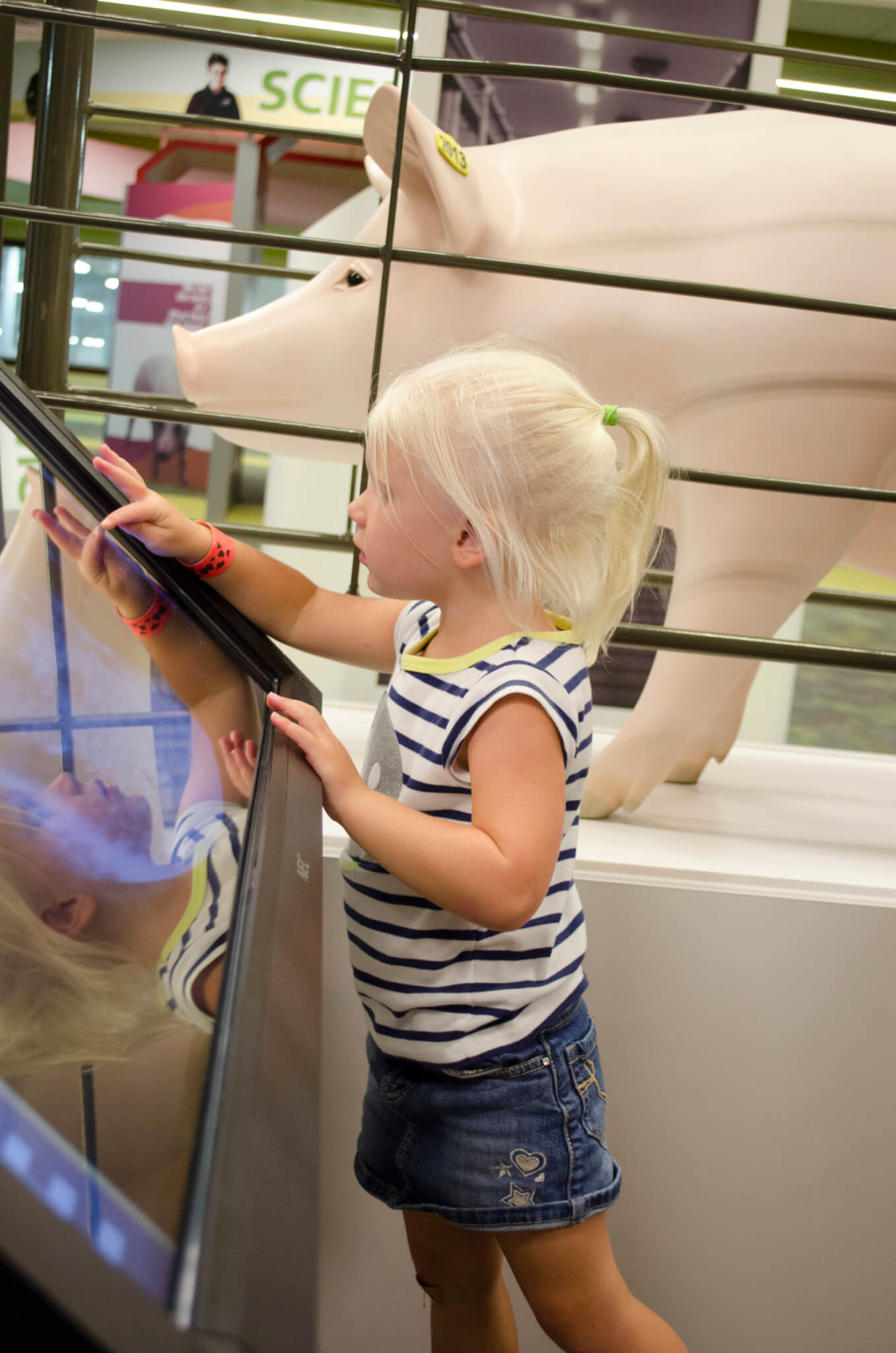
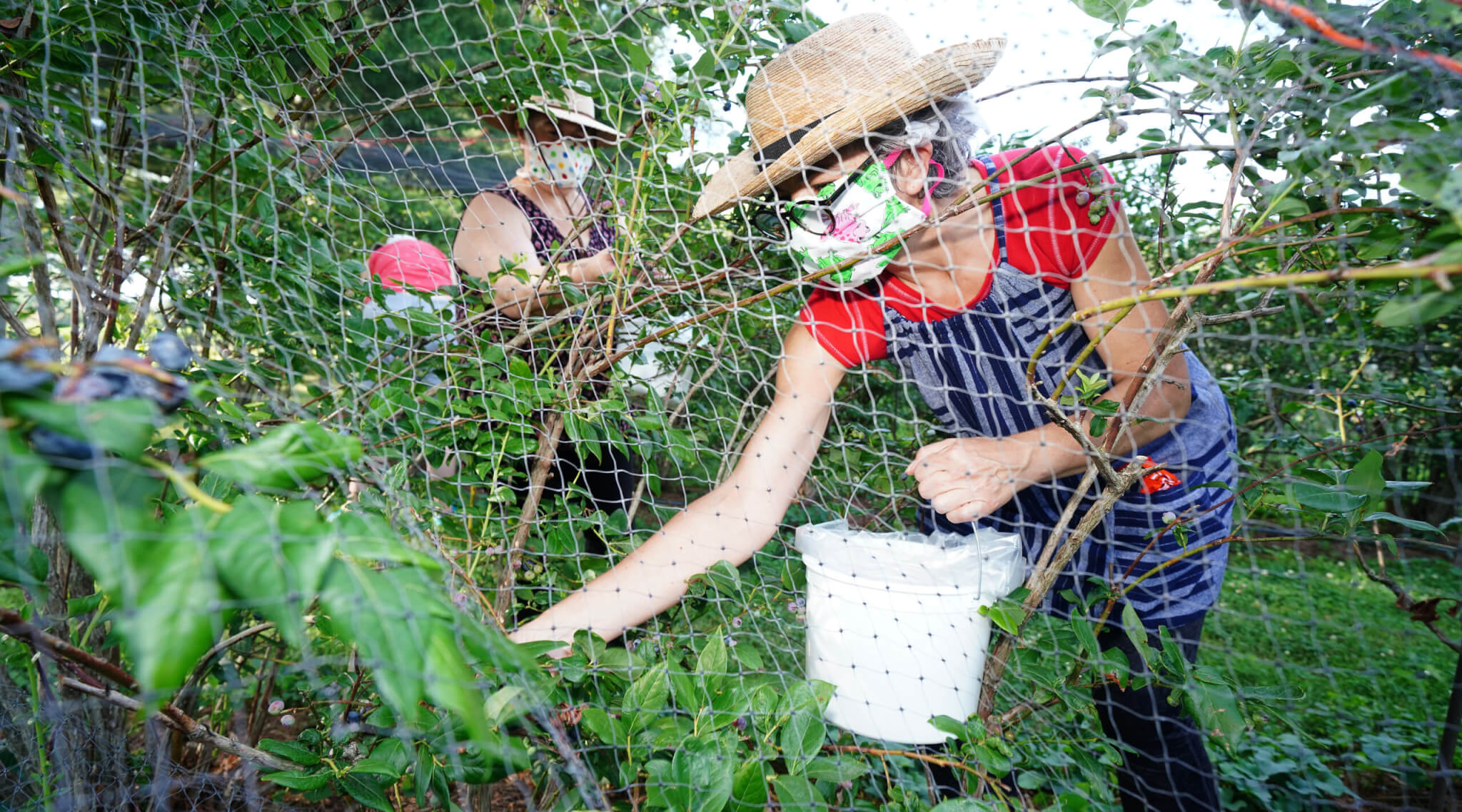
How Hoosier farmers markets are coping with COVID-19
Farmers markets in Indiana are organized at the local level, subject to county health authorities and regulations. Under normal circumstances, these rules don’t differ much from town to town, Tamara Benjamin, assistant program leader for diversified farming and food systems for Purdue Extension, said.
In the era of COVID-19, however, the regulations dictating safety standards to vendors and visitors can vary drastically.
Read Full Story >>>The Road from Farm to Table
The following questions and answers provide background and insight into how COVID-19 is impacting the food supply chain and animal welfare. The information is provided by Jayson Lusk, distinguished professor and head of the Department of Agricultural Economics, Purdue University, and Candace Croney, professor of animal behavior and well-being, and director of the Center for Animal Welfare Science, Purdue University.
Read Full Story >>>How Hoosier farmers markets are coping with COVID-19
Farmers markets in Indiana are organized at the local level, subject to county health authorities and regulations. Under normal circumstances, these rules don’t differ much from town to town, Tamara Benjamin, assistant program leader for diversified farming and food systems for Purdue Extension, said.
In the era of COVID-19, however, the regulations dictating safety standards to vendors and visitors can vary drastically.
Read Full Story >>>The Road from Farm to Table
The following questions and answers provide background and insight into how COVID-19 is impacting the food supply chain and animal welfare. The information is provided by Jayson Lusk, distinguished professor and head of the Department of Agricultural Economics, Purdue University, and Candace Croney, professor of animal behavior and well-being, and director of the Center for Animal Welfare Science, Purdue University.
Read Full Story >>>